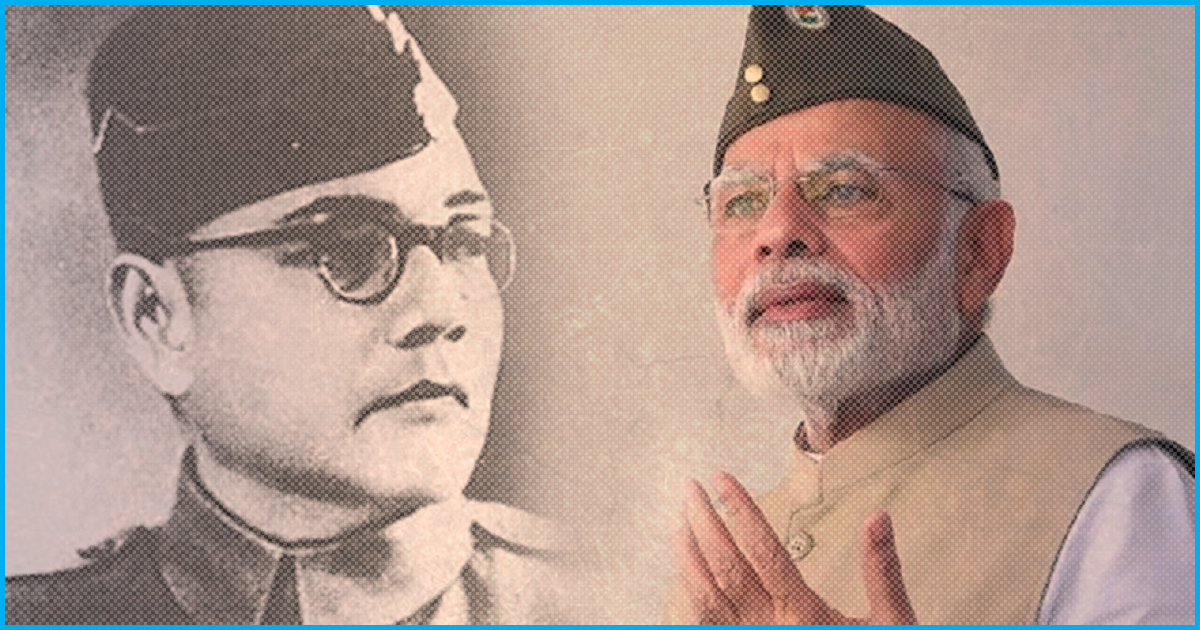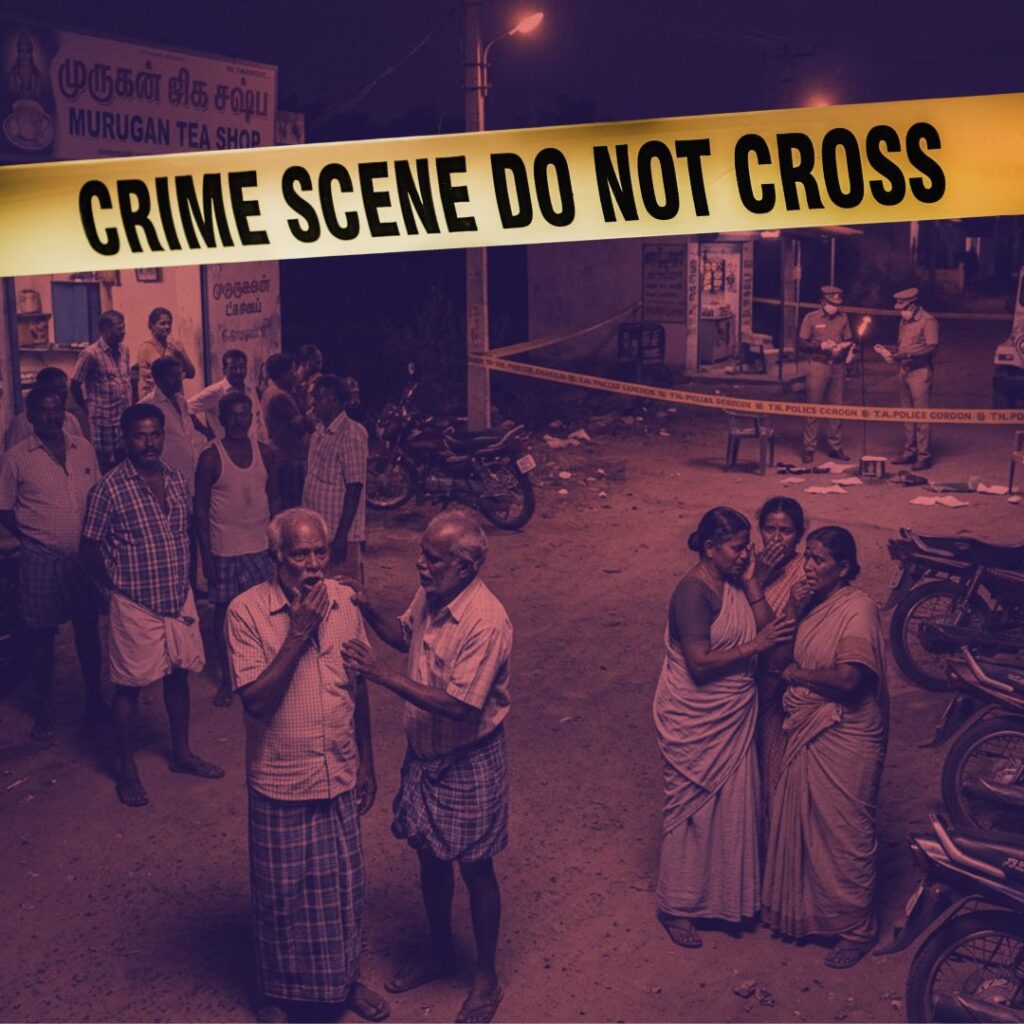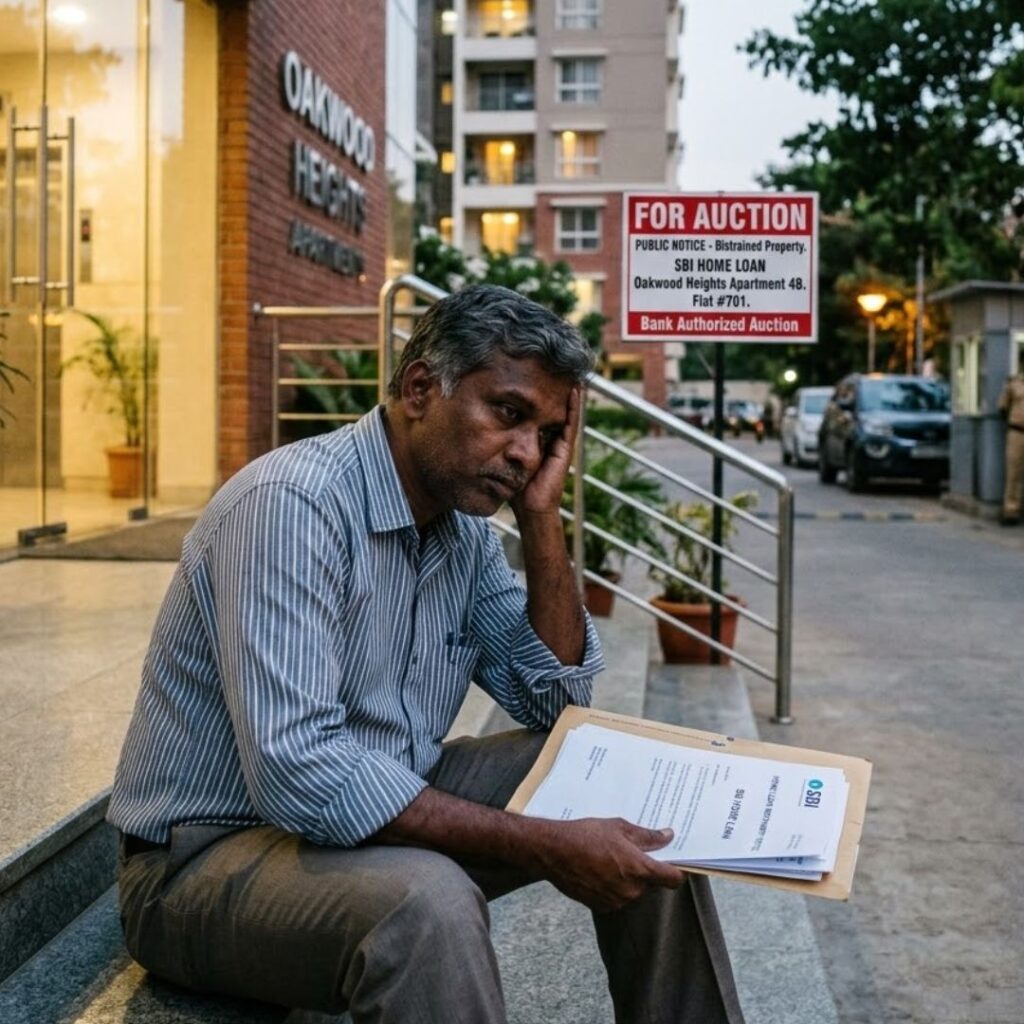At the celebrations of the 75th anniversary of the proclamation of the Azad Hind government, Prime Minister Narendra Modi said in his speech that India would have benefited from the leadership of Subhas Chandra Bose and Vallabhai Patel and that their contributions to the freedom struggle were downplayed to accommodate the ambitions of “one family”.
The speech, made in front of veterans of the Indian National Army (INA), which fought for independence from the British Empire during the Second World War, was overtly political in nature, with PM Modi punctuating praises of Bose’s and the INA’s historic efforts with attacks on the Indian National Congress.
Politicising an event meant to remember and honour those who fought for our freedom is objectively unwarranted and uncalled for. The Prime Minister should have used the event to recount the achievements of the INA, discuss the legacy of Netaji, and commemorate the countless who gave their lives for India’s independence instead of turning it into a name-calling circus to gain some political points for himself.
But in this instance, a further argument can be made that the Prime Minister’s own claims are either false or make him look hypocritical.
Bose, Nehru and Gandhi
Prime Minister Modi and his party tried on this occasion – and on several before – to paint a picture of animosity and enmity between Subhas Chandra Bose and Jawaharlal Nehru, or Subhas Chandra Bose and Mohandas Gandhi. Such claims are revisionistic and attempts at distortion.
While Bose may have been at odds with Gandhi and Nehru’s non-violent worldview, all of them recognised the fact that they all shared the same goal for India: independence from the British. Despite their political differences, they had great respect for each other as they were united by a deep love for the country.
In fact, Nehru donned the lawyer’s gown to join the defence team during the INA trials at the Red Fort. The recently declassified Netaji Files reveal a tale of warmth and caring, showing how Nehru sought to take care of the late Subhas Chandra Bose’s family.
Bose’s reverence for Gandhi and the latter’s admiration for Bose are well-documented. Gandhi called Bose the “Prince among the Patriots” and it was Bose who first referred to Gandhi as the “Father of the Nation”.
Bose was also supportive of the Quit India Movement and, during his march to India at the head of the INA, he had named his brigades after Gandhi and Nehru. Moreover, Azad Hind’s flag displayed the spinning wheel, Gandhi’s beloved charkha.
Bose and the Hindu Mahasabha
Subhas Chandra Bose was a fervent critic of Vinayak Savarkar, a man regularly praised and deified by PM Modi. On many occasions, Bose objected to the worldview of the Akhil Bharatiya Hindu Mahasabha, which was founded by Madan Mohan Malaviya (another of the PM’s heroes) and described by Bose as a “communal organisation”.
Bose bluntly accused the Hindu Mahasabha of being more interested in the downfall of the Congress than in the independence of India. In a March 1940 editorial, he wrote that the Hindu Mahasabha had colluded with the British in the Calcutta Municipal Election at the expense of Indian parties:
“… the tactics employed by some Hindu Mahasabha leaders … have caused us pain and sorrow. The Hindu Mahasabha did not fight a clean fight … [Their] candidates included men who had tried their level best to break the Congress Municipal Association and to that end had formed the United Party in the Corporation in co-operation with British and nominated groups of councillors. Some of them have been re-elected and one could easily anticipate how they would behave in future.
The Hindu Mahasabha has given evidence of greater desire to do down the Congress than to save the Corporation from British domination.
It remains to be seen if any other Indian group in the Corporation will show more keenness to resist British domination than to fight the Congress…”
As Congress President, Bose oversaw the passage of a resolution barring members from joining the Muslim League or the Hindu Mahasabha (Savarkar was President of the Hindu Mahasabha from 1937 to 1943).
An editorial that Bose wrote in Forward Bloc Weekly in May 1940 read thus:
“That was a long time ago when prominent leaders of the Congress could be members of the communal organisations like Hindu Mahasabha and Muslim League. But in recent times, the circumstances have changed. These communal organisations have become more communal than before. As a reaction to this, the Indian National Congress has put into its constitution a clause to the effect that no member of a communal organisation like Hindu Mahasabha and Muslim League can be a member of an elective committee of Congress.”
A major point of contention between Bose and Savarkar was the Quit India Movement. The Hindu Mahasabha joined the Muslim League in boycotting Gandhi’s calls to launch one final struggle to make the British leave India. And under Savarkar’s instructions, the Hindu Mahasabha went one step further in actively aiding the British war effort: they were ordered to “flood the [British] army, the navy and the aerial forces with millions of Hindu warriors”.
Addressing 23rd session of Hindu Mahasabha at Bhagalpur in 1941, Savarkar said, “Hindu Mahasabhaits must … rouse Hindus especially in the provinces of Bengal and Assam as effectively as possible to enter the military forces of all arms without losing a single minute.”
Meanwhile, Gandhi and Nehru were preparing to launch the Quit India Movement and Subhas Chandra Bose was in exile securing help from the Axis Powers to launch an invasion of British India. Both sides here employed different tactics but their goal was the same: freeing India from the British.
The exact opposite was the aim of Savarkar’s Hindu Mahasabha, which was actively trying to sabotage the anti-colonial efforts – in fact, Hindu Mahasabha leader Syama Prasad Mukherjee(another man praised by PM Modi) was writing letters to British authorities advising them about how they could crush the nationalists participating in the Quit India movement.
In a radio address in August 1942, after encouraging Indians to continue in their struggle against the British, Bose admonished the Hindu Mahasabha and the Muslim League:
“… I would request Mr Jinnah, Mr Savarkar, and all those leaders who still think of a compromise with the British, to realise once for all that in the world of tomorrow, there will be no British Empire. All those individuals, groups or parties who now participate in the fight for freedom will have an honoured place in the India of tomorrow … The supporters of British imperialism will naturally become non-entities in a free India…”
The nation’s martyrs and freedom fighters are not political tools
There is something objectively sinister about misrepresenting the history of your country, especially when it involves the lives of those who fought and died for your freedom. There is something objectively sinister also about converting an event to honour our martyrs into a political rally.
The individual reading this article may subscribe to any political ideology or party of their choice, but that should not deter them from criticising Prime Minister Modi for his theatrics during the 75th anniversary of the proclamation of the Azad Hind government.
It is wrong in every sense to denigrate martyrs to petty politics. Especially so when the politics is based on falsehoods and mischaracterizations. Of course, the PM can easily give validity and integrity to the claims he made – by simply disavowing Savarkar and the Hindu Mahasabha by calling them out for their treasonous behaviour during the Quit India Movement and their collusion with the British, which everyone from Gandhi to Bose so despised.
70 years after independence, these things should not be important, but if the Prime Minister insists on bringing these matters to the front page now and again, he might as well get his facts straight – and preserve his integrity while at it.
Also Read: Only I Know How Much Nehru Toiled For India, Sardar Patel’s Letter On Nehru’s 60th Birthday










